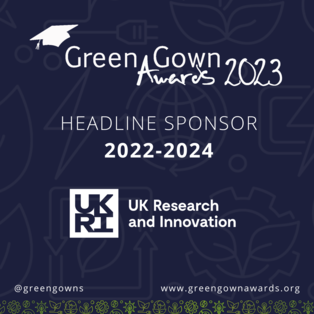Displaying 41–52
of 52 results | View 20
50
100
per page
-
Web Page
Middlesex University is in collaboration with the British Computer Society (BCS) to develop student and professional knowledge of ethical, environmental and social issues in ICT
Tags:
teaching | ICT | ethical
-
PDF
A case study from City and Islington College, which donates its old computers to developing countries via the charity Computer Aid.
Tags:
waste | recycling | ICT | WEEE | computer | pc
-
Web Page
This case study explains how the University of Sheffield has undertaken a detailed estimate of the energy/carbon footprint of its ICT estate.
Tags:
university | ICT | jisc | electricity | Sheffield
-
PDF
A case study from SUSTEIT about free cooling, avoidance of hot/cold air arrangements, and variable speed drives, which can save in energy costs, compared to older, unoptimised,...
Tags:
energy | ICT | cooling | computing
-
Web Page
Case study of the University of Gloucestershire realizing that computer and printer procurement and usage was a significant contributor to the university’s environmental...
Tags:
ICT | computer | printer
-
Word Document
At the University of Liverpool, the self-developed software powers down around 3,500 participating computers that are idle for over 10 hours daily, bringing numerous benefits.
Tags:
efficiency | ICT | it | power | computers | software
-
Web Page
The Suste IT Tool is a simple carbon accounting tool that calculates the amount of energy (kWh), carbon (CO2) and money (£) is spent on ICT related energy use.
Tags:
carbon | ICT | suste
-
PDF
An Independent Evaluation of the SUSTE-TECH Project is a report prepared by Curtis+Cartwright Consulting Ltd for Environmental Association for Universities and Colleges (EAUC).
Tags:
ICT | tech
-
Web Page
A number of websites that provide useful information on green ICT.
Tags:
ICT | green ICT | websites
-
PDF
ICT briefing by JISC for the senior management team in November 2011, elaborating on the ways available for institutions to use ICT to go green, employing a couple of case studies
Tags:
ICT | briefing
-
Web Page
This report on sustainable ICT, produced for the Joint Information Services Committee (JISC) was by Professor Peter James and Lisa Hopkinson at the University of Bradford.
Tag:
ICT
-
PDF
EAUC Member responses about advice on the options for cooling IT server rooms.
Tags:
energy | carbon | ICT | reduction | data | cooling | centre





 Except where otherwise stated, content on this site is
licensed under a Creative Commons Attribution 3.0 License.
Except where otherwise stated, content on this site is
licensed under a Creative Commons Attribution 3.0 License.
